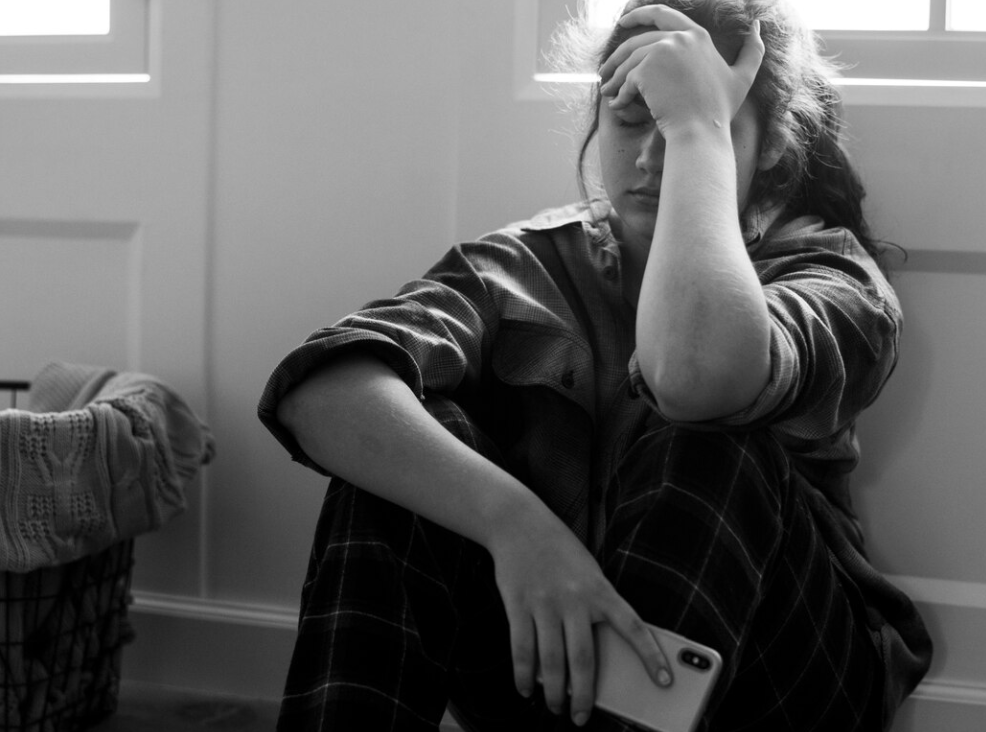What is “Digital Self-Harm”?
by Anne Ueberbach
Assistant Director / Counsellor
What is “Digital Self-Harm”?
Digital self-harm is a relatively new phenomenon that refers to the act of intentionally and anonymously posting hurtful or mean comments about oneself online, often on social media platforms such as Facebook, Twitter (“X”), Instagram or TikTok. This behaviour is also known as "self-trolling" or "self-cyberbullying."
Digital self-harm can take many forms, including:
Posting negative or hurtful comments anonymously about oneself on social media.
Creating and sharing memes or images that mock or belittle oneself.
Engaging in online arguments or debates with oneself, often using multiple accounts.
Sharing personal information or secrets online, potentially causing emotional distress.
Why do We Digitally Self-Harm?
This behaviour may seem counterintuitive, as it involves intentionally causing harm to oneself. However, research suggests that digital self-harm can be a coping mechanism for some individuals, particularly adolescents and young adults, who may be struggling with:
Low self-esteem or self-worth.
Mental health issues, such as depression or anxiety.
Trauma or past experiences of bullying.
Feeling overwhelmed or struggling to cope with online harassment or cyberbullying.
Risk Groups of Digital Self-Harm
A 2020 survey by the National University of Singapore (NUS) found that 1 in 5 youths (20.6%) in Singapore reported engaging in digital self-harm, such as cyberbullying themselves or posting hurtful messages online. Digital self-harm is most common amongst female teenagers (24.5%) in Singapore than boys (16.3%), with the highest risk group being between 15 and 18 years of age. However, digital self-harm may start as early as 12 years old, which is also correlated to more frequent and more severe self-harm behaviours. Individuals with a history of mental health issues, substance use problems or a history of abuse are also more at risk of engaging in self-harm, digital or otherwise.
The gender difference mostly disappears by young adulthood, making all genders equally subjective to digital self-harm. A 2022 report by the Singapore Children's Society found that digital self-harm was among the top 5 online risks faced by children in Singapore, along with cyberbullying, online harassment, online grooming, and exposure to harmful content.
Consequences of Digital Self-Harm
Digital self-harm can have serious consequences, including:
Escalating online harassment or cyberbullying
Digital self-harm can attract more online harassment, as others may join in or respond with similar hurtful comments, and generally increase the risk of cyberbullying.
Reinforcing negative self-talk and self-blame
Engaging in digital self-harm can reinforce negative self-talk and self-blame, leading to a worsening mental health state.
Worsening mental health outcomes, such as depression or anxiety
Digital self-harm has been linked to depression, anxiety, post-traumatic stress disorder (PTSD), and even suicidal thoughts and behaviours.
Damaging relationships and social connections
Digital self-harm can damage relationships with friends, family, and peers, as well as lead to social isolation, which often makes it harder for affected individuals to seek help.
Long-term emotional scars
Digital self-harm can leave long-term emotional scars, affecting self-esteem, confidence, and overall well-being.
Managing Digital Self-Harm
If you or someone you know is engaging in digital self-harm, it's essential to seek help from a mental health professional or a trusted adult. They can provide support, guidance, and resources to address underlying issues and develop healthier coping mechanisms. It is essential to address digital self-harm with compassion, understanding, and support, encouraging individuals to seek help and develop healthier coping mechanisms. As with most harmful behaviours, early intervention and prevention is key.
Management tips include:
Identify triggers and patterns by reflecting on when and why you engage in digital self-harm. A thought journal can help you keep track of your self-reflections.
Consider a digital detox by temporarily disconnecting from social media and any other online platforms. Better yet, stay away from your phone, tablet or computer altogether. The less exposed you are to harmful or tempting online environments, the less risk there is of engaging in digital self-harm.
Create a safe online space by unfollowing/blocking harmful or negative accounts and content, limit your followers and following to people you know and trust or positive and supportive content creators.
Engage in self-care to help you cope with potential underlying stressors. We are often kinder to ourselves when we feel good about ourselves. So don’t skip your meals, sleep or usual self-care routines.
Practice self-compassion by treating yourself with kindness and understanding. We should always treat ourselves the way we would treat a loved one.
Seeking professional help from a mental health professional such as a counsellor or psychologist to address underlying issues and to develop healthy coping strategies.



